A keynote delivered by Dr ChiChi Aniagolu-Okoye, Ford Foundation, Regional Director, West Africa, at the maiden edition of the Asharami Square organised by Sahara Group, on Monday, 24 June 2024
Opening
Join our WhatsApp ChannelThank you for inviting me to this important and timely discussion on how to shape African narratives on Carbon Footprints. The topic for discussion is timely, because whether we believe it or not Climate Change is an existential threat, and the world has agreed on finding ways to reduce the total greenhouse gas emissions to save our planet.
Therefore, our narratives going forward must not only focus on the challenges but the opportunities this moment presents for Africa as a continent. We must highlight Africa’s contribution to the climate stability of the world. We must change the story of Africa being the only victim of climate change requiring help to an Africa that is also a climate action and mitigation champion! We don’t win by always being on the defence and projecting weaknesses. We win on offence and projecting value and leverage. Having enormous untapped minerals and renewable resources, the youngest and fastest growing population on earth, there are opportunities to place Africa firmly at the table of the climate debate. The media must be at the forefront of this narrative change!
In this paper, I will start by explaining what climate change is and why it is important for the world to address climate change. I will also explain why Africa’s focus should not be on reducing carbon emissions and the areas we should focus on. I will conclude with how Africa should position itself to benefit from the green economy and sector.
Climate Change and why it is important for the world to address it.
Since the industrial revolution nearly 140years ago, the Earth temperature has spiked and scientists collectively agree that coal, oil and gas burned by humans is the primary cause followed by deforestation and intensive farming. But Carbon dioxide (CO₂) makes up 80% of all greenhouse gases and is the most significant contributor to human-caused climate change. These gases rise into the atmosphere and insulate the earth, causing temperature to rise. It is almost like the glass of the green house roof. As a result, the Earth has abruptly warmed about 1°C –1.5°C on average.1°C – 1.5°C may not seem like much of a temperature increase but like a fever, its is enough to destabilise the Earth and cause extreme weather, including severe heat waves, down poor’s, draughts, flooding, snowstorms and landslides in some places and unstable weather conditions.
Climate Change therefore is the long-term shifts in temperature and weather patterns including variations in precipitation, sea level and agriculture.
READ ALSO: Sahara Group Backs Waste To Wealth In Sustainability Effort
The year 2023 is on record as the hottest year since global records began in 1850 at 1.18°C (2.12°F) above the 20th-century average of 13.9°C (57.0°F) and scientists report humanity must drastically cut carbon emissions before damage to the earth is irreversible and to do that, will require transitioning from an over reliance on fossil fuel for energy to cleaner greener energy. However, even though the whole world is focusing on reducing carbon emission and rightly so, it should not be made a priority for Africa because Africa’s contribution to carbon emission is about 4% with average emissions per person at only 0.8 tonnes of Carbon dioxide (CO₂) per year, compared to the global average of 4.8 tonnes. You will agree with me that if the world was at 4% there will be no energy transition conversation. However, the fact that Africa is contributing very little to climate change does not mean that climate change does not affect Africa or that Africa doesn’t have to do anything about climate change. On the contrary the continent is experiencing the consequences of climate change just like everybody else- crops are failing, weather is changing, water is drying up and so forth – nonetheless, the challenge of energy transition for Africa is more of a justice issue and our narrative should be to identify and highlight these justice issues which are hardly making it into the international conversations on energy transition. For me therefore, the climate change and energy transition narrative in Africa should be around 3 key issues – the justice question, resilience/ adaptation, and participating in the green economy/sector
I will take each one of them
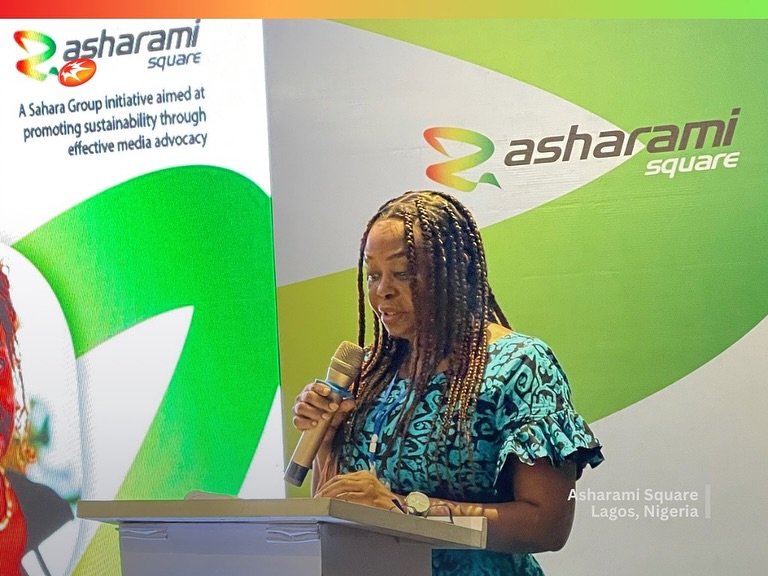
1. The justice question – Climate Impacts everything and everyone … but there is need for justice!!
Divestment – The world has been calling on oil companies to divest from fossil fuel extraction as a way to reduce carbon emissions and in Nigeria, oil companies are divesting from onshore oil production to offshore or completely from the country and they are being applauded globally, but what is little known is that they are leaving in their wake a trail of environmental and ecological devastations that have destroyed livelihood in extractive communities. Our narrative is to highlight these ecological devastations as part of the climate conversation and ensure that these companies are held accountable for the environmental damage they have caused as part of the conversations on mitigation
Green Minerals – Climate change solutions include embracing solar and wind-generated electricity to end our dependence on fossil fuels, but we cannot afford to replicate the Niger Deltas environmental and ecological tragedy across the nations in search of transition minerals. I often joke that when the minerals required for green energy are referred to as green minerals, it conjures the image that they grow on trees, but they don’t. They also have to be extracted. So in West Africa we are technically not transitioning because we are moving from fossil fuel extraction to the extraction of green minerals – cobalt, lithium and graphite – and if care is not taken the same challenges that communities faced with fossil fuel extraction – environmental pollution, conflict, community exploitation and so- will replicate with green minerals extraction. Our narrative is to ensure that mining communities are spared the environmental devastation of fossil fuel communities and government develops policies and engagement plans and puts in place structures to protect communities from exploitation and ensure they benefit from the mining taking place on their land.
We must bear in mind that in most resource dependent economies like Nigeria, extraction and industrialization have a long history related to colonial dominance and slavery. So, it is important for every conversation about the impacts of climate change in Africa to recognise these dynamics of resource plunder including in its post colonial form with the support of local elite. The theft of lands, resource rents, the wholesale clearing of forests and social ecological destruction and the hierarchy of industrial work have contributed to the climate related problems we face today. This is why justice for the communities whose lands and livelihoods have been destroyed must be at the centre of the conversation[4]. Nowhere on the planet is feeling climate change’s effects more than in Africa.
READ ALSO: How Africa Can Position To Benefit From Green Economy – Aniagolu-Okoye
Development – Another justice issue is how can Africa meet its development needs in the face of energy transition in a way other nations have because addressing the climate challenge is like climbing the ‘Iroko’ tree, it is complex and there are no magic bullets or easy solutions. This is because what we need to cut down on to reduce carbon emission is also a life source for many. For instance, advocates are calling for concrete to be banned because the cement industry is one of the main producers of carbon dioxide, a greenhouse gas. Concrete causes damage to the most fertile layer of the earth, the topsoil, yet, developing countries in Africa depend on inexpensive concrete to build affordable buildings. Again, while we call for carbon reduction, we still need to provide energy access to millions of Africans, and most of our economies depend largely on fossil fuels and mineral resources to finance development. Our narrative, therefore, must continue to point out that this is no easy walk and Africa requires international support, careful planning and implementation of good policies to navigate and address the climate question.
Resilience/ adaptation
Despite Africa’s negligible contribution to carbon emission, it stands out disproportionately as the most vulnerable region in the world to climate change. This vulnerability is driven by the prevailing low levels of socioeconomic growth on the continent. While climate change is global, the degree of impact will mainly depend on each country’s ability to implement adaptation and mitigation measures. The poor are disproportionately vulnerable to its effects. This is because they lack the resources to afford the goods and services they need to buffer themselves and recover from the worst of the changing climate effects. According to recent research, the upsurge in droughts, floods, heatwaves, and other climate-related events is reducing the continent’s economic growth by 5% to 15% per year. In simple terms, this is to say that the productive output of each African is reduced by 5 – 15% annually because of climate change and is reflected in declines in food systems, damaged infrastructure, increased prevalence of diseases, lost biodiversity, which affects vital income sectors like tourism, among others.
Even though this is the case in Africa, and yet…. nowhere are the solutions to climate action more viable than in Africa.
Africa holds up to 17% of the global population yet accounts for a negligible 4% of cumulative global historical Carbon dioxide (CO₂) emissions, the least of any region. This makes the continent not only the smallest emitter but a net-positive continent, whose net positivity contributes significantly to stabilizing the global climate. Africa also has both the mineral and natural resources, largest sources of renewable energy in the world, from solar, hydro, wind and geothermal. Africa is also blessed with a young working population and the natural carbon sinks, rain forests, swarm and mangroves forests. For example, the African rainforests are famed for being the world’s best carbon sponges. The Congo Basin rainforest offsets more than the whole African continent’s annual emissions and larger than the Amazon Forest. Nigeria’s Niger Delta is one of the largest but complex and dynamic wetlands in the world and is Africa’s largest Delta. These ecosystems are not only globally important for biodiversity but a carbon sink- if well cleaned up from the oil and gas pollution, the Delta will make a significant contribution to Africa’s carbon reduction targets.
- Africans also have a lot to share with the world on climate adaptation. Most communities adapted ways of living in harmony with climate and nature for millions of years. Unfortunately, most of this knowledge is not documented and shared. It is, therefore, important for governments, the private sector, civil society and media to encourage the ethical and equitable engagement with Indigenous Peoples and local communities to document, share and learn application of traditional knowledge, wisdom, and values in the design and implementing of climate adaptation policies and plans.
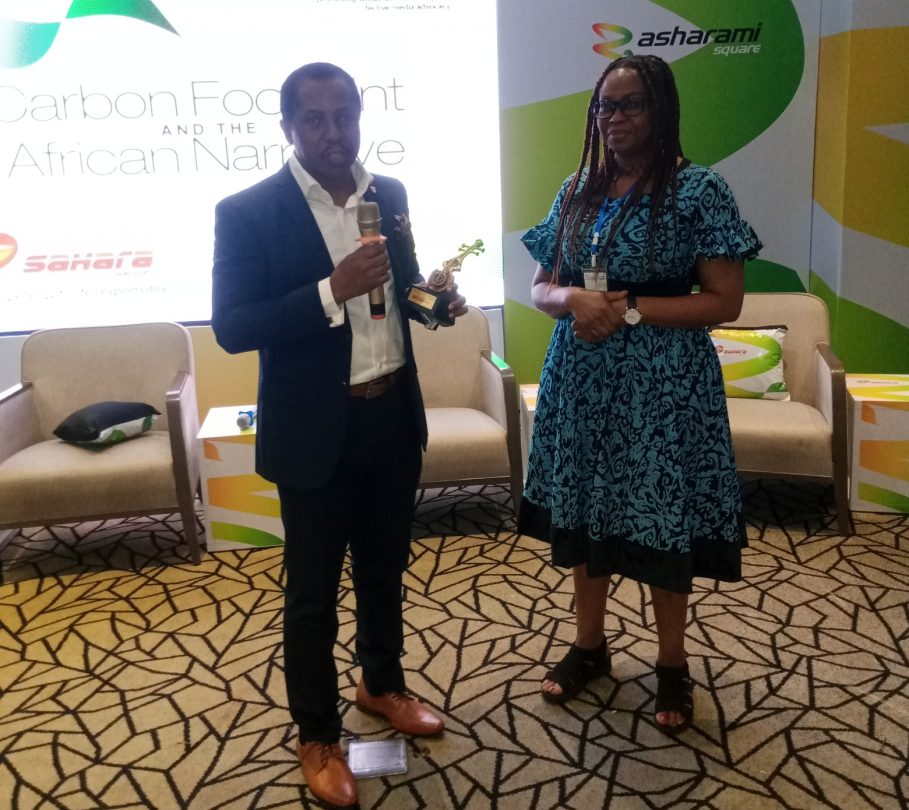
Participating in the green economy/sector
Our narrative should also be about ensuring our participation in the emerging green economy. West Africa has experienced 5 successful coups in the last few years due to the worsening economic and security challenges. As a fossil fuel and natural resource dependent region, the transition to greener energy may spell doom for the economies of many of the region’s countries, if not handled properly. We must, therefore, be intentional in ensuring that our governments design carefully developed transition plans that ensure minimum damage to the economy. The urgency to support African nations in adapting their economies to a climate-affected future is only too apparent. Yet, an “us and them” framing of the climate debate is a road to nowhere – or, instead, a road to almost certain climate disaster and ever greater humanitarian misery. Only by reframing the narrative around climate action as an opportunity for a green economic development pathway into the future that maintains its status as a low-carbon emitter. However, this must be informed and backed by good data, appropriate transition models, that are inclusive, aimed at addressing existing inequalities and led by local expertise. This will provide opportunity to develop investment plans and invest in critical areas like sustainable food and land use systems. It is only in developing the capacities and retooling the youth for green economic opportunities and adaptation and mitigation measures based on African realities and lived experience, do we stand a hope of averting climate catastrophe. As citizens of Africa, we have been conditioned to believe we are helpless in a global world, whereas we have solutions to the world. It is time to take back control, write the narrative and be the masters of our destiny.
-
In conclusion, I make the following recommendations
- our narratives around climate change in Africa, must be aimed at raising the justice issues, shifting norms, values and perceptions. It must be aimed at strengthening the voice, visibility and collective action of those most affected by climate change and exclusion. Our communication must raise public awareness about both the challenges and opportunities including indigenous knowledge that climate change offers. Our writings must demand and promote policies and rights of communities most affected, especially women and youth.
- Secondly, youth/Women are Africa’s powerhouse and, together with the informal sector, form the most critical constituency of implementers. Tapping into the ingenuity and creativity of youth, leveraging the spirit of innovative volunteerism can foster symbiotic collaborations with the informal sector in driving the uptake of climate action solutions.
- We must seek collaborative partnerships, no one individual, organization or donor can address the range of actions required to address Climate Change, therefore partnership across different stakeholders, government, private sector, communities, CSOs and media is important
- Getting our political, traditional and faith-based leaders at all levels- local, state and national levels to be committed to climate change initiatives and polices is also critical
- Finally, ladies and gentlemen, our narrative must not present Africa only as a victim of climate change but also the solution. To this end, African countries must put in place a structure for implementing their climate action commitments in a manner that meets leading socioeconomic priorities, community benefits, local adaptation – food security, creation of income and enterprise opportunities for the youth, economic expansion and learning lessons from fossil fuel communities to protect mining communities from exploitation, conflicts and devastation.
Thank You
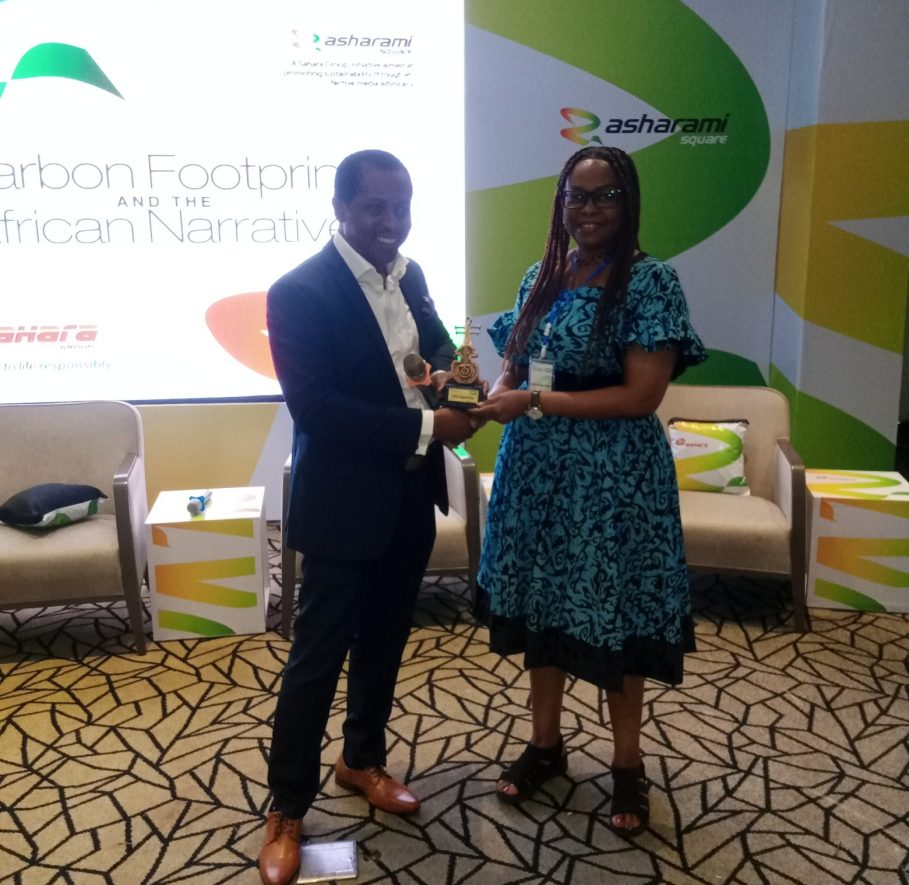

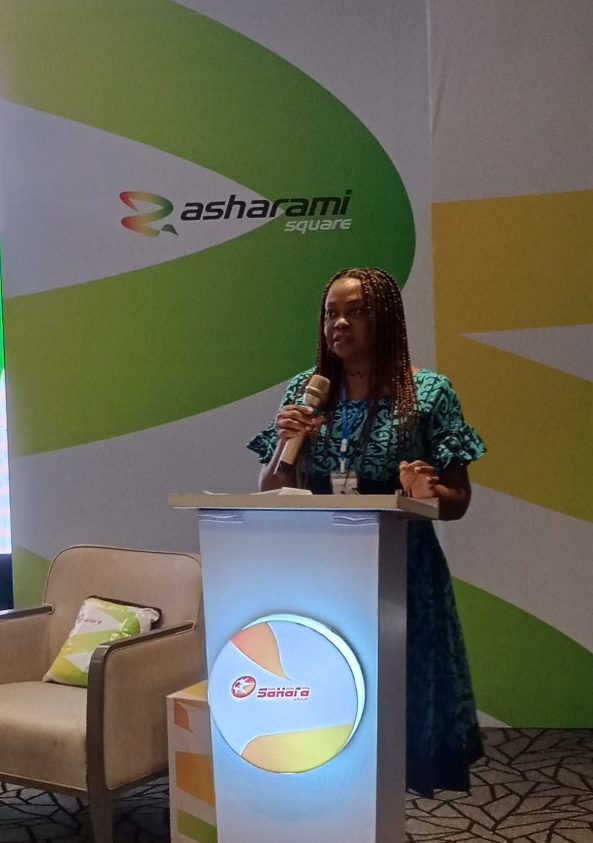
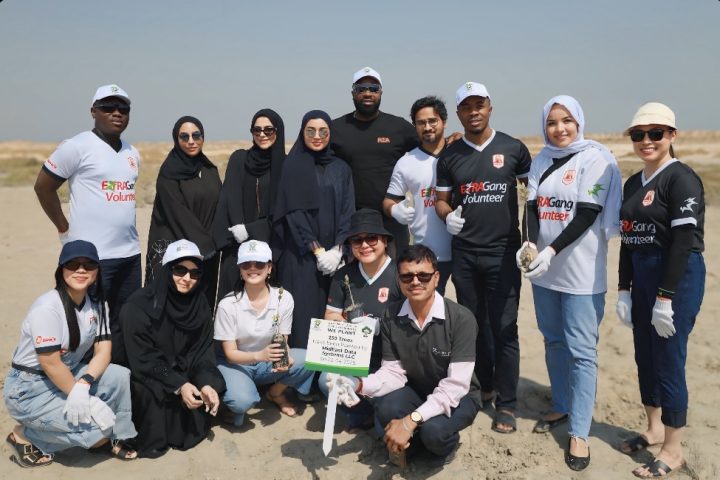

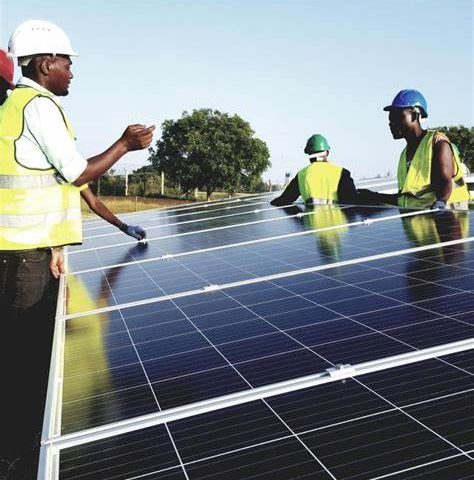









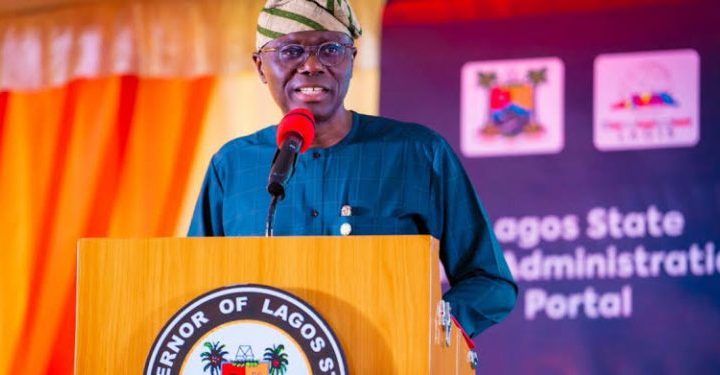
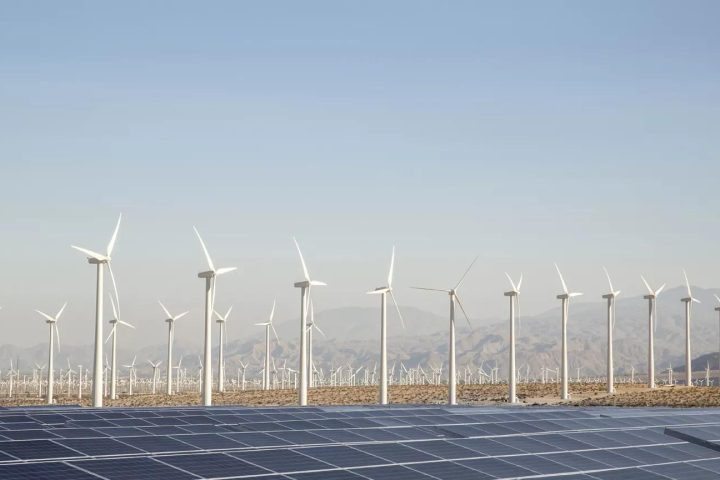

Follow Us